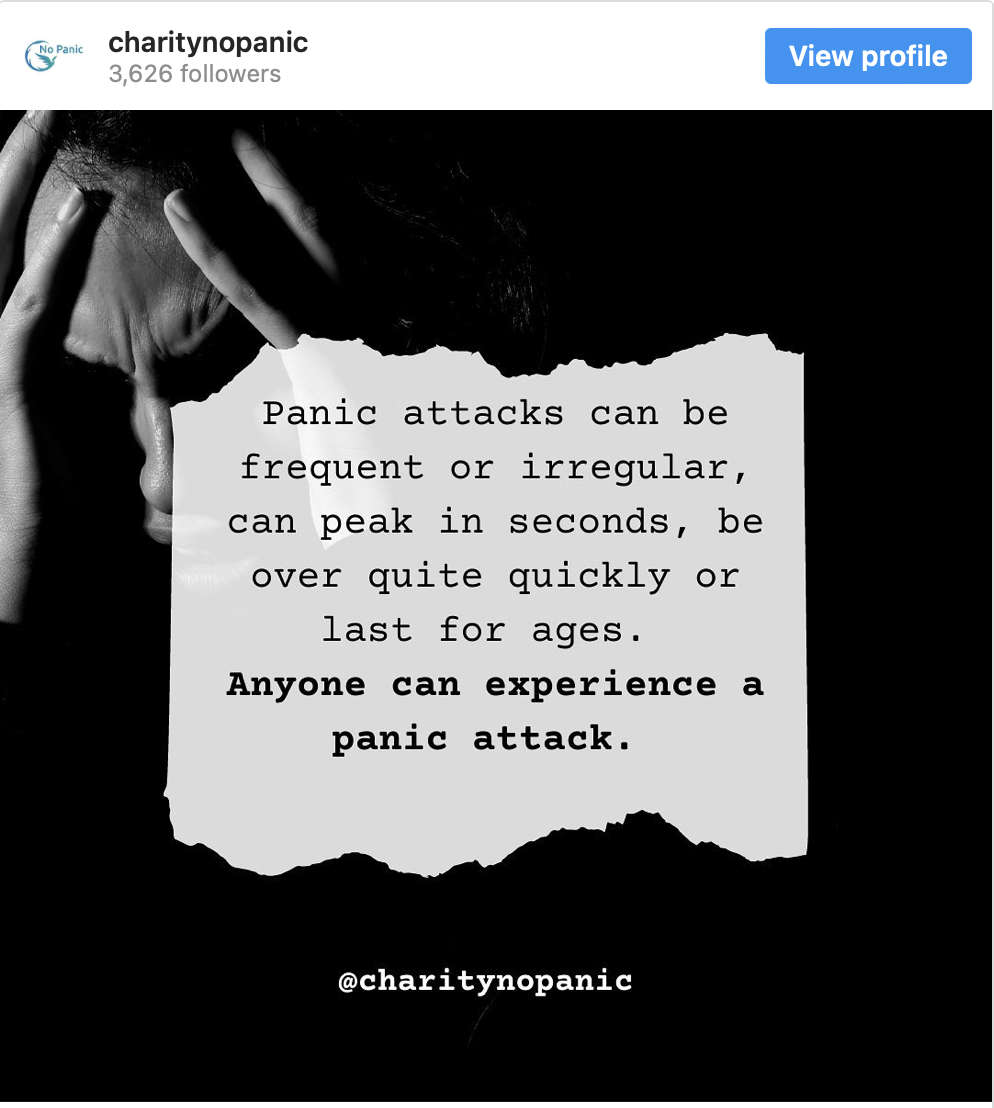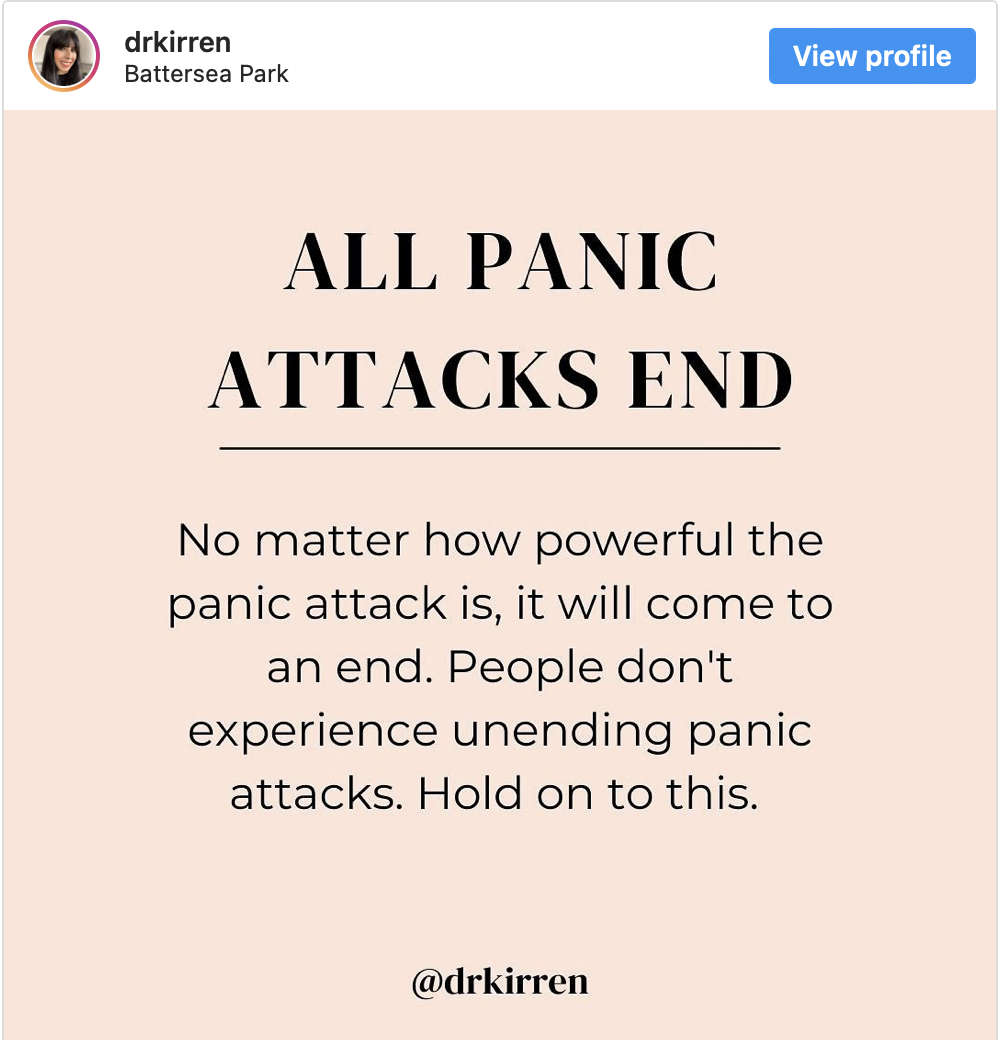
A frightening combination of physical and psychological symptoms, panic attacks are extremely unpleasant to experience, and they can happen to anyone.
“It is estimated that most people will experience at least one of these out-of-the-blue attacks at some point in their life,” says Dr Andrea Reinecke, from the University of Oxford’s Department of Psychiatry.
However, some people may be more susceptible to panic attacks than others, says Dr Lynne Green, chief clinical officer at mental wellbeing app, Kooth: “There are lots of factors that might increase the risk of an individual having panic attacks, including certain medications, traumatic events and memories, substance misuse and pre-existing health conditions. However, the number one factor is significant stress.”
So how can you tell if your rising day-to-day stress is turning into something more concerning? To mark April’s Stress Awareness Month, we asked mental health experts to answer some frequently asked questions about panic attacks…
What is a panic attack?
“During a panic attack, the body’s autonomous fight-or-flight response takes over,” Dr Green explains. “This is a stress reaction that likely evolved out of the survival needs of our early ancestors, and activates the nervous system to help prepare the body to fight or flee.”
The result is a very overwhelming sense of anxiety, fear, or a feeling of dread that something terrible is going to happen, at the same time as one or more physical symptoms. “We can feel shortness of breath, tight chest, tingly fingers or hands, slightly sweaty, dizzy, fast pulse,” says Stefan Chmelik, integrated healthcare expert and inventor of Sensate neural acoustic technology.
What are the common causes of panic attacks?

“Panic attacks tend to occur in cases of severe anxiety,” says Dr Green. “They can happen completely out of the blue and without an obvious cause, or they may be expected, for example in relation to a known trigger such as exposure to something that feels scary.”
A trigger could be something like having to do a presentation at work, being stuck on crowded public transport, or driving in heavy traffic. Or simply reaching peak overwhelm at the end of a very stressful period of time.
Dr Green adds:
“In situations where there is obvious danger, [people] would be expected to be fearful of the danger. However, where there is no obvious danger, individuals tend to be more fearful of the symptoms themselves – sometimes even believing them to be life threatening, such as evidence of an imminent heart attack.”
What should you do when a panic attack hits?

As a racing heartbeat is common during a panic attack, focusing on your breathing can help. “Breathing out is the key during a panic attack,” says Chmelik. “Say to yourself, ‘When in doubt, breathe out’. Breathe out and say, ‘It’s OK, thank you highly evolved nervous system for alerting me to what you think is a problem. But I see it and it’s OK – you can step down now. I’m not in danger’.”
If you’ve experienced a panic attack before, you can practise breathing techniques to prepare in case it happens again.
Chmelik says: “If you can practice the art of breathing out [and] not holding your breath when you feel good or OK or content, then it’s easier to apply this to an anxiety situation, because your body already knows and remembers how to do this.”
When should you seek professional help for panic attacks?
“Whilst panic attacks themselves are not life threatening and usually pass within 30 minutes or so, they can lead to serious complications, for example through unhelpful behaviours such as self-medicating with alcohol to avoid feelings of anxiety which precede the panic,” says Dr Green. “They must always be taken seriously.”
Dr Reinecke advises: “If they happen repeatedly over six months, and you are starting to be worried about when your next attack will strike, you [could be] on the path towards an anxiety disorder that might need treatment.”
Dr Jeff Foster, GP from H3 Health, describes the difference between one-off attacks and a more serious problem: “In true panic disorders, these feelings come on without any trigger and severely affect your ability to function day-to-day. So for example, if you are panicking because you have an exam, you are moving house, had a relationship break-up etc, then this is normal. But if it stops you going out, doing things you enjoy, or you are getting them for no reason, then see a doctor.”
What is the treatment for panic attacks?

People who experience panic attacks are often worried, and sometimes even convinced, that their physical symptoms are caused by a medical condition.
“The first step would be to have one proper physical check-up, for peace of mind – thyroids, heart, hormones (eg menopause, the pill) etc can all contribute to feeling like this,” says Dr Reinecke.
Once any underlying physical issues have been checked, talking therapy can be very helpful. “Exposure therapy is a form of cognitive-behaviour therapy [CBT], where the patient learns to react differently to fear triggers. In our research, we have for instance developed a highly effective single-session treatment that leads to improvements in most of our panic disorder patients, and to life-changing improvements in a large number of patients,” says Dr Reinecke.
However, counselling and CBT through NHS services is also a very helpful option to explore – ask your GP or see if you can self-refer online.
Where suitable, medication is another option. Chmelik says: “Your doctor will be able to prescribe drugs for you, such as anti-anxiety or beta blocker drugs to control the heartbeat, and these can be useful for some people in extreme situations where they can’t function otherwise.”
Addressing certain lifestyle factors can also be beneficial, says Dr Foster: “In particular, this means exercising regularly, eating healthily (high sugar and high caffeine foods can make panic worse), having good sleep hygiene, and being sociable – just by meeting up and talking to friends, and allowing you to vent, can be extremely beneficial for your mental health.”

 Five Fantasy Worlds We’d Love To Explore In Real Life
Five Fantasy Worlds We’d Love To Explore In Real Life
 Five Amazing Global Meals To Cure The January Blues
Five Amazing Global Meals To Cure The January Blues
 Five Incredible Spas Around the World
Five Incredible Spas Around the World
 Five Fab Wellbeing UK Destinations Ideal in January
Five Fab Wellbeing UK Destinations Ideal in January
 Five Weird Wellbeing Foods Around The World
Five Weird Wellbeing Foods Around The World